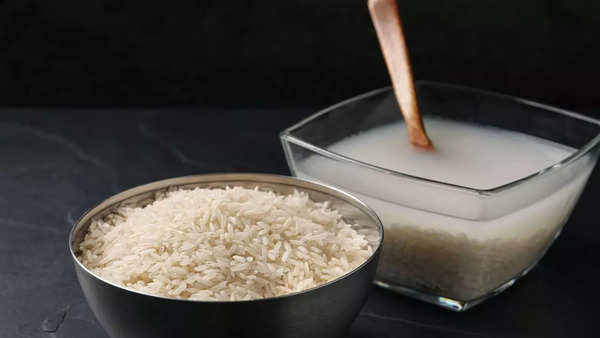Nutritional properties in rice water
Rice water is packed with vitamins, minerals, and antioxidants.During the cooking process, rice releases nutrients into the water, making it a nutrient-dense liquid. It contains vitamins such as B vitamins including B1, B2, B6, and B9, which play a crucial role in energy metabolism and cellular function. Minerals like potassium, magnesium, and phosphorus are also present, essential for maintaining bodily functions and promoting overall health. Moreover, rice water contains antioxidants like ferulic acid and allantoin, which help protect cells from oxidative stress and promote skin health.

How can rice water help in weight loss?
High nutrient density and low calories
Rice water is low in calories but high in nutrients, making it a good addition to a weight loss diet. It provides essential vitamins and minerals without significantly contributing to calorie intake, helping to maintain overall nutrition while reducing calorie consumption.
Promotes digestive health
Rice water contains soluble fibers such as resistant starch and oligosaccharides, which can aid in digestion and promote a feeling of fullness. These fibers help regulate bowel movements and support gut health, contributing to better digestion and potentially aiding weight management.
Hydration
Proper hydration is crucial for weight loss and overall health. Drinking rice water helps maintain hydration levels, which is often mistaken for hunger. Staying hydrated can reduce cravings and unnecessary snacking, thus supporting weight loss efforts.

May Support metabolism
Some studies suggest that certain compounds found in rice water, such as inositol, may help regulate metabolism and improve insulin sensitivity. Better insulin sensitivity can contribute to better blood sugar control and reduced risk of weight gain.
How to use Rice water for weight loss
Drinking rice water: After cooking rice, strain the water and let it cool. Drink it plain or flavored with a squeeze of lemon or a dash of cinnamon. Consuming a glass of rice water before meals may help reduce appetite and calorie intake.

Replacing higher-calorie drinks: Replace sugary beverages or high-calorie drinks with rice water. Its mild flavor makes it a base for smoothies or herbal teas, offering a low-calorie alternative.
Add as a stock: Use rice water as a cooking liquid for soups, stews, or porridge. It adds nutrients and a subtle flavor while contributing to a sense of fullness.
Rice soup: This is a traditional soup made with rice starch, spices and herbs that help in effective weight loss.

